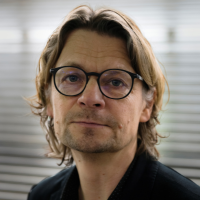Featuring Professor Gurminder K Bhambra’s keynote address on ‘Towards a Decolonial Europe,’ this all-day event will explore the connections between decolonial thinking and Europe. It will discuss the varieties of colonialisms that need to be addressed in European studies. The decolonial moment in European & EU Studies places the silenced histories of colonialism, racialisation, hierarchies, and exclusions at the centre of our understanding of the European present. The event will consider how European Studies can look beyond Europe historically and geographically, and to look beyond Eurocentrism philosophically, materially, politically, and culturally to produce a more accurate and inclusive social science.
For more information about this event visit our event page.
See below for the full programme and further details about the panels and talks.
Registration is now open here.
If you are unable to attend the event in full, you can register for the event and email Charlotte Ennis with which session/s you plan to attend.
|
Programme
Wednesday 31 May 2023
MAR.1.08, Marshall Building, LSE Campus and Online
9:30am - 6:30pm BST
|
9:30am
|
Refreshments
|
|
10:00am-11:15am
|
Towards a Decolonial Europe
Gurminder K Bhambra, Professor of Postcolonial and Decolonial Studies, Department of International Relations in the School of Global Studies, University of Sussex
Chair: Eva Połońska-Kimunguyi, LSE
|
|
11:15am
|
Refreshments
|
|
11:30am-13:00pm
|
On silences and violences of Eurocentric knowledge - panel
European liberal modernity and the reproduction of canonical silences, Wendy Willems, LSE
Decolonising EU Studies: (Im)possibilities and Imperatives, Olivia Rutazibwa, LSE
Modern Migration Theory, Peo Hansen, Linköping University
Chair: Eva Połońska-Kimunguyi, LSE
|
|
13:00pm
|
Lunch (Sandwich lunch)
|
|
13:30pm-14:30pm
|
De-colonising Research and Teaching in EU Law - talk
Iyiola Solanke, Oxford University
Chair: Sonya Onwu, LSE
|
|
14:30pm
|
Refreshments
|
|
15:00pm-16:30pm
|
Echoes of Empire in the EU integration project - panel
Colonialism, EU integration and EU social citizenship: The colonial origins of the EU’s ‘embedded liberal bargain’, Diamond Ashiagbor, Kent University
The myths of peace and statehood in European integration theory: the imperial legal order of the Rome Treaty, Eva Połońska-Kimunguyi, LSE
Decolonizing EU integration theories, Jan Orbie, University of Ghent
Chair: Chris Anderson, LSE
|
|
16:30pm
|
Closing Remarks
Simon Glendinning, LSE and Eva Połońska-Kimunguyi, LSE
|
|
17:00pm - 18:30pm
|
Reception
|
|
Towards a Decolonial Europe - Keynote Address
Towards a Decolonial Europe
Gurminder K Bhambra, Professor of Postcolonial and Decolonial Studies at the University of Sussex.
A decolonial project for Europe, I argue, is one that places the colonial histories of Europe at the centre of our understandings and seeks to redress the injustices associated with that history through postcolonial reparative action. Where we start from, and which histories and epistemologies we acknowledge when we do so, profoundly shapes our understandings. I discuss these issues in the context of The Guardian’s recent investigation into the histories of slavery and cotton and ask what wider lessons are available from that endeavour for thinking through understandings of ‘decolonial Europe’.
On silences and violences of Eurocentric knowledge - Panel

A Modern Migration Theory: Exposing the Myth of Refugees as Fiscal Burdens
Peo Hansen, Professor of Political Science at the Institute for Research on Migration, Ethnicity and Society, Linköping University.
Today both researchers and policy-makers agree that refugees admitted to the European Union constitute a net cost and fiscal burden for the receiving societies. As is often claimed, there is a trade-off between refugee migration and the fiscal sustainability of the welfare state. In this seminar, Peo Hansen shows that this consensual cost-perspective on migration is built on a flawed economic conception of the orthodox “sound finance” doctrine. By shifting perspective to examine migration through the macroeconomic lens offered by Modern Monetary Theory, Hansen can demonstrate sound finance’s detrimental impact on migration policy and research. Most importantly, this undertaking offers the tools with which both migration research and migration policy could be modernized and put on a realistic footing.
Decolonising EU Studies: (Im)possibilities and Imperatives
Olivia Rutazibwa, Assistant Professor in Human Rights and Politics, Department of Sociology, LSE.
The talk weaves narratives of (personal) experiences in EU Studies with a set of epistemic, method(logical) and teleological questions that arise when we seriously engage the decolonial invitation for this field of study. What appears as untenable or obscene? What needs more attention? What needs radical (re-)invention?
European liberal modernity and the reproduction of canonical silences
Wendy Willems, Associate Professor and Deputy Head of the Department of Media and communications, LSE.
Jürgen Habermas’ seminal book, The Structural Transformation of the Public Sphere: An Inquiry into a Category of Bourgeois Society, provides an influential historical account of the emergence of the European bourgeois public sphere, focusing specifically on England, France and Germany. However, in its celebration of European liberal modernity, the book silences the transnational context which shaped and enabled these new spaces to emerge. Focusing on the case of London’s coffee houses and newspapers, this presentation examines what the emergence of a bourgeois public sphere in 17th- and 18th-century London looks like if we re-read it within the context of slavery and the slave trade.
De-colonising Research and Teaching in EU Law - Talk
De-colonising Research and Teaching in EU Law
Iyiola Solanke, Jacques Delors Professor of European Law at the University of Oxford.
What happens when we take epistemic injustice as a starting point for interaction with EU law? What could this mean in relation to teaching and research in the various fields of EU law and the European legal order? I will now discuss what I think is the purpose, principles and practice of decolonising EU law. My talk is an invitation to play with this this idea of ‘decolonisation’ and think about how it could open up the world of European integration and EU law to a new generation of scholars and audiences.
Echoes of Empire in the EU integration project - Panel
Colonialism, EU integration and EU social citizenship: The colonial origins of the EU’s ‘embedded liberal bargain’
Diamond Ashiagbor, Professor of Law, University of Kent.
EU law scholarship lacks an analysis of the role of colonialism or racial capitalism in the EU project. This presentation explores the connections between European colonialism and European integration, in particular in the creation of the single market. The contention is that the pattern of exchange between the European ‘core’ and the global South ‘periphery’, the extraction of commodities from the South, and the commodification of the labour power of colonial states made possible the redistributive welfare states of the global North. And this, crucially, facilitated the single market, through embedding EU market liberalisation within national institutions of social citizenship.
Decolonizing EU integration theories
Jan Orbie, Professor in European Union (EU) External Relations at the Department of Political Science at Ghent University (Belgium).
In his talk Jan Orbie will explore how EU integration theories could be decolonized. First, he will consider how marginalized perspectives on European integration could contribute to provincializing the canon. Second, he will analyze the colonial dimension of early European integration theories and their neglected of counter-hegemonic regionalisms in Africa and the Caribbean.

The myths of peace and statehood in European integration theory: the imperial legal order of the Rome Treaty
Eva Połońska-Kimunguyi, Fellow in European Politics, European Institute, LSE.
This presentation challenges the ontological assumptions of European Union (EU) theory that rest on the primacy of ‘states.’ It also refutes the narrative of peace which is celebrated in scholarship and EU self-representation. It looks at early integration through the postcolonial lens and demonstrates that the legal order established by the Treaty of Rome institutionalised the colonialism of EU members at the new supra-national level. It infused the European project with imperial, violent, hierarchical, and racial characteristics. Theories of the EU do not include colonialism and empire in their representations of the early integration and silence the violence committed outside Europe. Hence, they produce a historically inaccurate and conceptually misleading account of early European integration. The post-colonial reading of the EU brings history back to the story of Europe to advance a revisionist account of theories of early European integration.
Closing Remarks
Closing Remarks
Simon Glendinning, Professor in European Philosophy and Head of the European Institute, LSE.
Eva Połońska-Kimunguyi, Fellow in European Politics, European Institute, LSE.